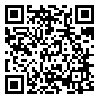Fri, Jan 30, 2026
[Archive]
Volume 7, Issue 2 (8-2025)
Int. J. Ethics Soc 2025, 7(2): 1-7 |
Back to browse issues page
Download citation:
BibTeX | RIS | EndNote | Medlars | ProCite | Reference Manager | RefWorks
Send citation to:



BibTeX | RIS | EndNote | Medlars | ProCite | Reference Manager | RefWorks
Send citation to:
Eskandari H. The Action of the Iranian People Amid Crisis: An Action Rooted in Cultural, Historical, and Ethical Depth. Int. J. Ethics Soc 2025; 7 (2) :1-7
URL: http://ijethics.com/article-1-390-en.html
URL: http://ijethics.com/article-1-390-en.html
Department of Clinical Psychology, Faculty of Psychology and Educational Science, Allameh Tabataba’i University, Tehran, Iran , sknd@atu.ac.ir
Abstract: (978 Views)
Introduction: In the 21st century, wars are no longer defined solely by missiles and firepower. They have transformed into psycho-social arenas in which the ultimate targets are not just land or government, but the very fabric of "The Public" and the foundational "state-nation relationships." By threatening the biological and psychological security of people, such wars aim to surface latent dissatisfactions, destabilize collective bonds, and internally lead societies toward despair and collapse. In this context, Iran and the Iranian people have responded to the recent crisis (the twelve-day war) in a complex, multilayered, and unpredictable manner. This paper attempts to reinterpret and analyze this response within its conceptual, ethical, and civilizational framework.
Conclusion: Modern wars, especially those exemplified by the twelve-day war, may begin by targeting geography, but their ultimate aim lies in the psychological and social structures of nations. These wars strive to turn the people into agents against their governments by provoking anxiety, eroding solidarity, disrupting social life, and employing media representations. One well-known scenario in waging such wars involves using real economic, psychological, and social grievances to activate a destructive chain reaction: from external threat to internal explosion. In this model, the pressure of war incites the people against the ruling system, deepens the state-nation divide, and facilitates internal collapse. In this scheme, the people are not merely targets. They are positioned at the heart of the war as the primary medium through which pressure is applied. However, the people are not merely reactive. History has shown that nations can engage in actions that exceed all predictions; actions emerging from their deep cultural, historical, ethical, and mythological layers. In the early days of the twelve-day war, while the Iranian people were experiencing anxiety, natural defensive reactions, and intense concern, on a more hidden level, they demonstrated an ethical, national, and even mythic form of agency. This action was undoubtedly not in defense of the power structure, but rather in defense of The Public, the collective self, and a meaningful mode of existence. The response of the Iranian people can be analyzed on several layers: initial biological and psychological reactions; followed by efforts to preserve social ties and recreate meaning on a cultural level; and finally, the emergence of an ethical-mythical form of action that reflects the people’s connection to their collective memory, national dignity, and existential conception of “Iran.” While war may destabilize existing mechanisms, it also creates the possibility for reconstruction. If this ethical, mythological, and meaning-oriented action of the Iranian people is properly heard, recognized, and reflected, it could serve as the foundation for a renewed The Public, not one based on power but on collective selfhood and the common good.
Conclusion: Modern wars, especially those exemplified by the twelve-day war, may begin by targeting geography, but their ultimate aim lies in the psychological and social structures of nations. These wars strive to turn the people into agents against their governments by provoking anxiety, eroding solidarity, disrupting social life, and employing media representations. One well-known scenario in waging such wars involves using real economic, psychological, and social grievances to activate a destructive chain reaction: from external threat to internal explosion. In this model, the pressure of war incites the people against the ruling system, deepens the state-nation divide, and facilitates internal collapse. In this scheme, the people are not merely targets. They are positioned at the heart of the war as the primary medium through which pressure is applied. However, the people are not merely reactive. History has shown that nations can engage in actions that exceed all predictions; actions emerging from their deep cultural, historical, ethical, and mythological layers. In the early days of the twelve-day war, while the Iranian people were experiencing anxiety, natural defensive reactions, and intense concern, on a more hidden level, they demonstrated an ethical, national, and even mythic form of agency. This action was undoubtedly not in defense of the power structure, but rather in defense of The Public, the collective self, and a meaningful mode of existence. The response of the Iranian people can be analyzed on several layers: initial biological and psychological reactions; followed by efforts to preserve social ties and recreate meaning on a cultural level; and finally, the emergence of an ethical-mythical form of action that reflects the people’s connection to their collective memory, national dignity, and existential conception of “Iran.” While war may destabilize existing mechanisms, it also creates the possibility for reconstruction. If this ethical, mythological, and meaning-oriented action of the Iranian people is properly heard, recognized, and reflected, it could serve as the foundation for a renewed The Public, not one based on power but on collective selfhood and the common good.
Type of Study: Editorial |
Subject:
Special
Received: 2025/08/4 | Accepted: 2025/08/10 | Published: 2025/08/13
Received: 2025/08/4 | Accepted: 2025/08/10 | Published: 2025/08/13
Send email to the article author
| Rights and permissions | |
 |
This work is licensed under a Creative Commons Attribution 4.0 International License. |







